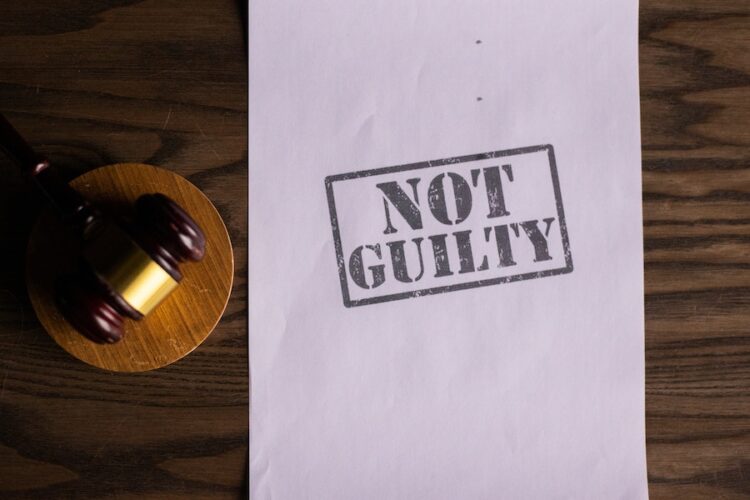The False Claims Act (FCA) is a federal law that imposes liability on individuals or companies that defraud the government by submitting false claims for payment. The FCA is a powerful tool in the government’s arsenal to combat fraud in the healthcare industry, particularly in the pharmaceutical sector. Pharmaceutical fraud can take many forms, including off-label marketing, kickbacks, and price-fixing.
In recent years, the government has stepped up its enforcement efforts against pharmaceutical companies that engage in fraudulent activities and https://federal-lawyer.com/whistleblower-lawyers/pharmaceutical/ can not only help but also protect whistleblowers who come forward with information about fraudulent activities. The Department of Justice (DOJ) has used the FCA to recover billions of dollars from drug manufacturers that have engaged in illegal activities.
The FCA allows the government to recover three times the amount of damages it has suffered, plus penalties for each false claim submitted. This has made the FCA a powerful deterrent against fraudulent activities in the pharmaceutical industry.
Pharmaceutical Fraud And The False Claims Act
Pharmaceutical companies and manufacturers are regularly prosecuted under the False Claims Act for various fraudulent activities, including off-label marketing, misbranding, and illegal kickbacks to medical providers. The False Claims Act imposes treble damages and penalties on those who knowingly and falsely claim money from the United States or knowingly fail to pay money owed to the United States.
One of the most common forms of pharmaceutical fraud is off-label marketing, which involves promoting a drug for uses not approved by the FDA. This can include promoting a drug to treat conditions that it has not been tested or approved for, or promoting it in doses or routes of administration that have not been approved. Off-label marketing can be particularly dangerous as it can lead to patients being prescribed drugs that may not be safe or effective for their condition.
Another form of pharmaceutical fraud is misbranding, which involves marketing a drug with false or misleading information. This can include making false claims about the safety or efficacy of a drug, or failing to disclose important information about its risks or side effects.
Pharmaceutical fraud can also involve illegal kickbacks to medical providers, such as offering financial incentives to doctors or hospitals to prescribe a particular drug. This can lead to patients receiving unnecessary or inappropriate treatments, and can also drive up healthcare costs.
Whistleblower’s Role And Protection
Whistleblowers have a crucial role to play in exposing pharmaceutical fraud. They can bring to light fraudulent activities such as false claims, kickbacks, and off-label marketing. Whistleblowers can report fraud and abuse of government programs and receive financial rewards for their efforts. The False Claims Act (FCA) is a federal law that protects whistleblowers who report fraud against the government.
Qui tam cases allow whistleblowers to file lawsuits on behalf of the government. The government can then intervene in the case and recover damages. Whistleblowers can receive up to 30% of the recovered amount as a reward. Qui tam cases have been instrumental in uncovering pharmaceutical fraud and abuse.
Whistleblower lawsuits can be challenging and complex. Whistleblowers must have credible evidence of fraud and abuse. They must also be prepared to face retaliation from their employers. The FCA provides protection to whistleblowers from retaliation. Employers cannot fire, demote, or harass whistleblowers for reporting fraud or abuse.
Whistleblowers who report pharmaceutical fraud and abuse can make a significant impact on the healthcare industry. They can help recover billions of dollars lost to fraud and abuse. Whistleblowers also play a crucial role in ensuring patient safety by exposing dangerous drugs and medical devices.
Corporate Integrity Agreements
Corporate Integrity Agreements (CIAs) are a tool used by the Department of Health and Human Services Office of Inspector General (HHS-OIG) to resolve exclusion authority arising out of healthcare fraud matters. CIAs are negotiated with healthcare providers and other entities as part of the settlement of federal healthcare program investigations arising under a variety of civil false claims statutes.
CIAs are designed to promote compliance with the statutes, regulations, and written directives of Medicare, Medicaid, and all other federal healthcare programs. The agreements also require the implementation of additional measures, such as the appointment of a compliance officer, the establishment of a compliance program, and the development of written policies and procedures.
CIAs typically last for five years, but they can be extended if necessary. Entities that violate the terms of their CIA can face significant financial penalties and exclusion from federal healthcare programs.
In 2021, the HHS-OIG entered into 30 new CIAs with companies and individuals to resolve exclusion authority arising out of healthcare fraud matters. These agreements covered a range of entities, including hospitals, pharmaceutical companies, and medical device manufacturers.
Conclusion And Future Implications
The False Claims Act has become a powerful tool in the fight against pharmaceutical fraud. The Act has allowed the government to recover billions of dollars in settlements from drug manufacturers who have engaged in fraudulent activities. The Act has also led to criminal and civil liability for individuals and companies who have participated in these activities.
One of the main implications of the False Claims Act is the potential impact on health care costs. When drug companies engage in fraudulent activities, they often inflate prices, which can result in increased costs for patients and insurers. The False Claims Act has helped to address this issue by holding drug companies accountable for their actions and recovering funds that can be used to offset the costs of health care.
Another implication of the False Claims Act is the potential for increased scrutiny and enforcement in the future. As the government continues to recover funds from drug companies, it is likely that more companies will be targeted for investigation. This could result in increased civil liability for drug companies and individuals who engage in fraudulent activities.
Overall, the False Claims Act has proven to be an effective tool in the fight against pharmaceutical fraud. As the government continues to recover funds and hold individuals and companies accountable for their actions, it is likely that the Act will play an increasingly important role in the health care industry.










